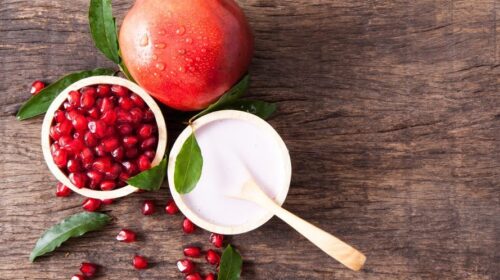Cosmetic Antioxidants Market valued at around USD 120million in 2020
Market Synopsis
The global cosmetic antioxidants market was valued at around USD 120million in 2020 and is expected to reach around USD 120 million by the end of 2028 at a CAGR of 4.5%.
Cosmetic antioxidants are natural and chemically derived antioxidants used in various cosmetic products such as skincare, haircare, and makeup. Antioxidants are naturally made from vitamins and minerals that include vitamin A, vitamin C, vitamin E, butylated hydroxyanisole (BHA), carotenoids, and butylated hydroxytoluene (BHT), amongst others. These antioxidants are widely used in various anti-aging, anti-inflammatory, UV protection, moisturizing, and hair conditioning products.
Growing personal care and cosmetics industry, aging population, increase in online purchase, and high demand from emerging economies are some of the factors expected to propel the growth of the global cosmetic antioxidants market. Furthermore, the advancements in technology, R&D,and rising demand for natural antioxidants further fuel the development of the global market. However, the high cost of natural antioxidants and rising concerns over synthetic antioxidants hamper the growth of the market. Further, increasing use of natural and green ingredients, followed by the increasing trend of chemical-free food products driving the demand for organic cosmetic and personal care products. Moreover, owing to such growing concerns, there are new certifications introduced in the market compiling the natural products requirement. For instance, Natural Products Association (NPA) designed a regulatory framework – Natural Standard Certification for Personal Care Products. Another prominent trend observed in the market is a continuous focus on multifunctionality as product development. Although multifunctionality is a relatively old trend in the market, it is being extended towards the newer products in the market. With changing lifestyles, consumer needs are evolving toward multifunctionality in various personal care product categories.
Competitive Landscape
The global cosmetic antioxidants market is consolidated with the presence of numerous global, regional, and local players, with prominent players holding the majority share of the market. Some prominent players include BASF SE, Koninklijke DSM N.V., Wacker Chemie AG, Eastman Chemical Company, Lonza Group, Croda International Plc, Ashland Global Holdings, Evonik Industries AG, Kemin Industries, Inc., and Barentz International BV, amongst others. Manufacturers focus mainly on acquisitions, joint ventures, and partnerships with key stakeholders to gain a competitive advantage over other players. Furthermore, producers are increasingly focusing on a strategic alliance with stakeholders, new product development, and expansion of production capacities to gain a maximum share of the global market. Moreover, due to the coronavirus outbreak globally, the global market has witnessed a decline in demand.
Segmentation
By Source
-
- This segment has been further segmented into natural and synthetic.
-
- The synthetic segment accounts for the largest market and is expected to witness healthy growth during the forecast period owing to its growing usage of synthetic antioxidants globally, and the low cost of raw material and production compared to natural antioxidants.
-
- The naturalsegment is expected to witness the fastest growth during the forecast period in terms of value. This growth is attributed to the increased demand for natural products in the cosmetic and personal care industry and increasing consumer inclination towards natural products.
By Type
-
- This segment has been further bifurcated into vitamins, carotenoids, polyphenols, enzymes, and others.
-
- The vitamin segment accounted for the largest market and is expected to record the fastest growth during the forecast period, which is mainly attributed to the health benefits offered by vitamins to the skin and hair.
-
- The carotenoid segment is expected to witness healthy growth during the forecast period due to its growing usage in anti-aging products. It enhances the appearance of dry or damaged skin by reducing flaking and restoring suppleness.
-
- Polyphenols are highly preferred due to their growing usage as anti-inflammatory, anti-aging, antimicrobial, and supporting activity in solar photoprotection.
-
- Enzymes are highly used in the cosmetic and personal care industry for resurfacing and skin smoothing.
-
- Other segments include products such as butylated hydroxyanisole (BHA), butylated hydroxytoluene (BHT), retinol, tert-butyl hydroquinone (TBHQ), and propyl gallate (PG), among others.
By Application
-
- This segment has been further divided into skincare, hair care, and makeup.
-
- The haircare segment is expected to witness significant growth in the global cosmetic antioxidants market owing to its growing application in hair conditioners, shampoos, hair cleansing products, etc.
-
- The makeup segment includes applications such as foundation, lipsticks, fragrances, etc.
By Region
-
- North America:Market growth is driven by the presence of a large-scale cosmetic and personal care industry, an aging population, and increasing awareness among consumers about self-care.
-
- Europe: Established cosmetic industry and strong foothold of leading manufacturers are driving the market in the region.
-
- Asia-Pacific: This is the largest and fastest-growing regional market owing to the rising cosmetic and personal care industry, increasing government investments, and emerging economies such as India, China, and Thailand.
-
- Latin America:The growing demand is due to the growing personal care and cosmetic industry in the region, especially in Mexico and Argentina.
Request a sample

